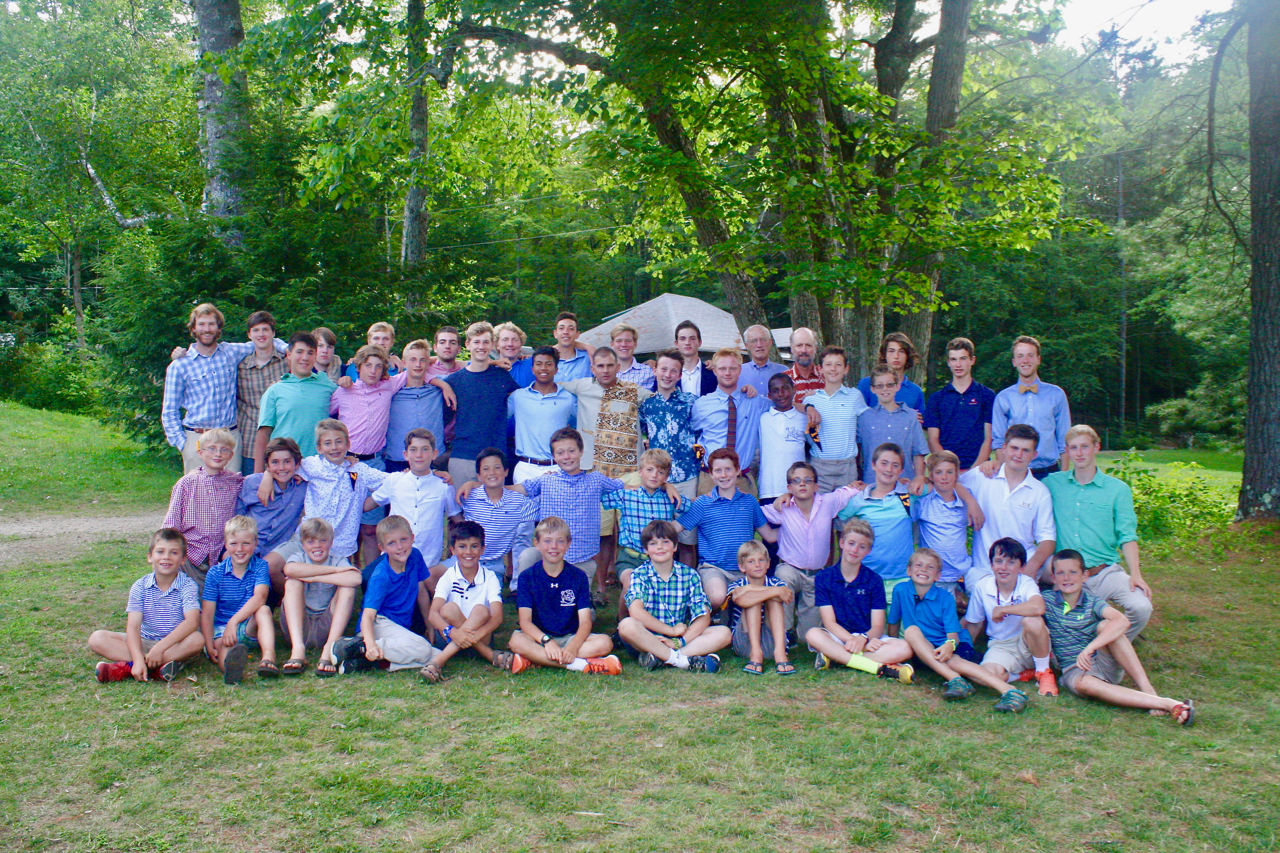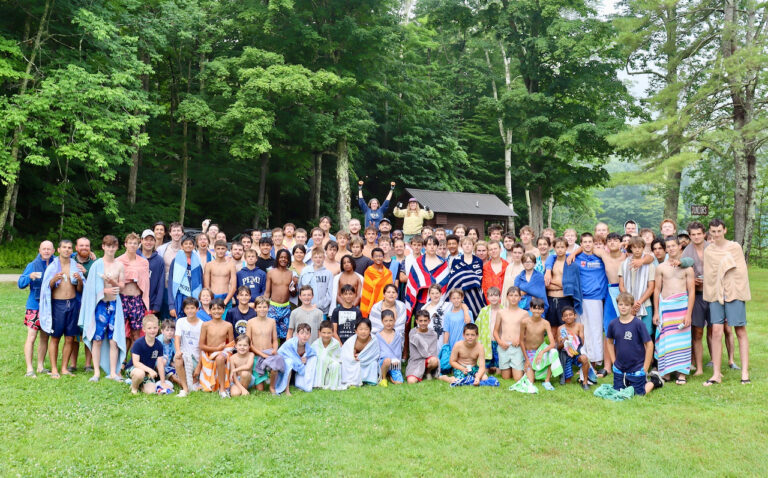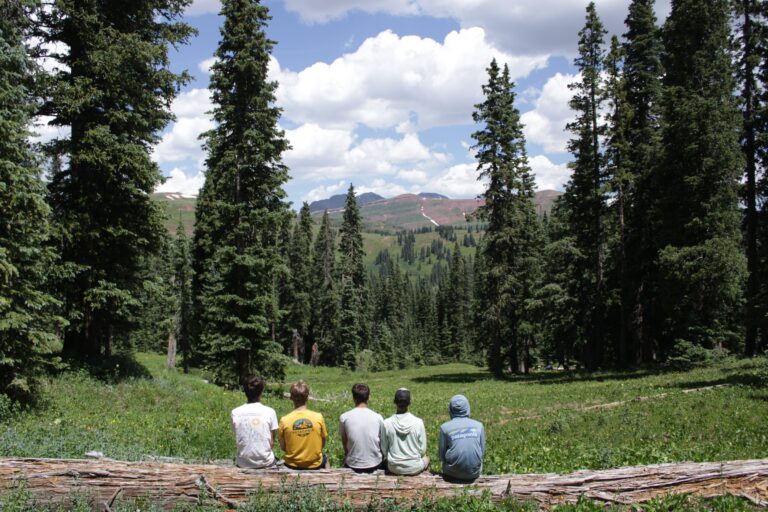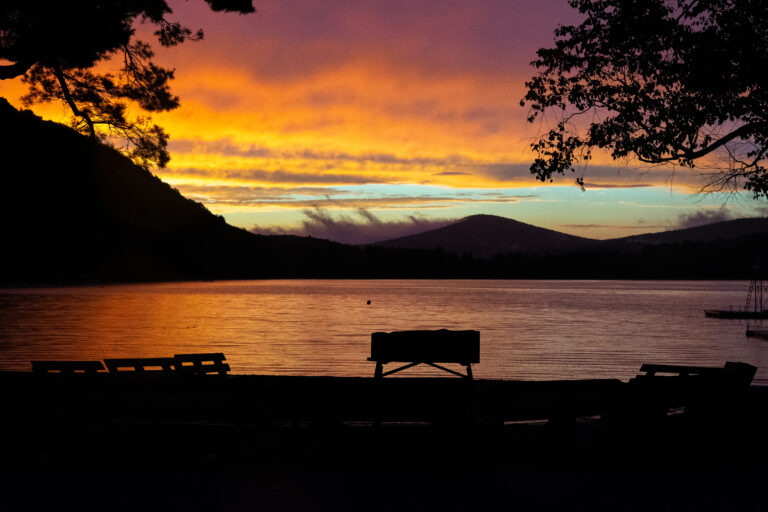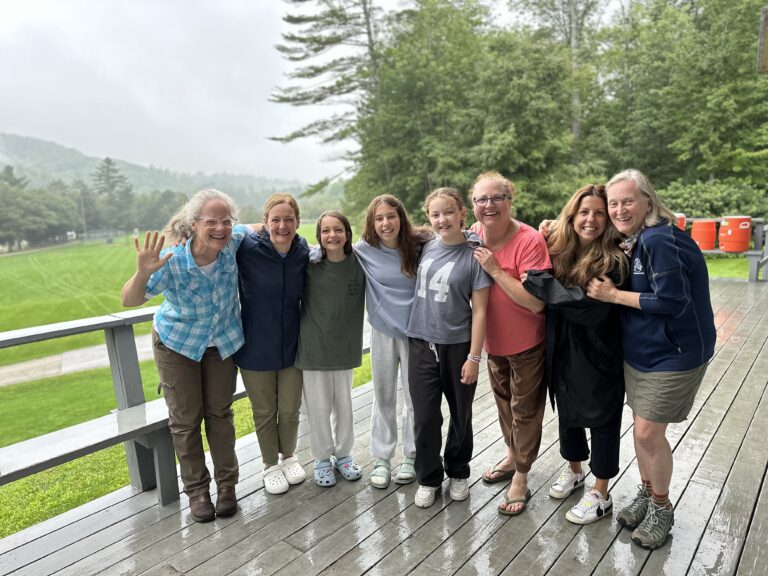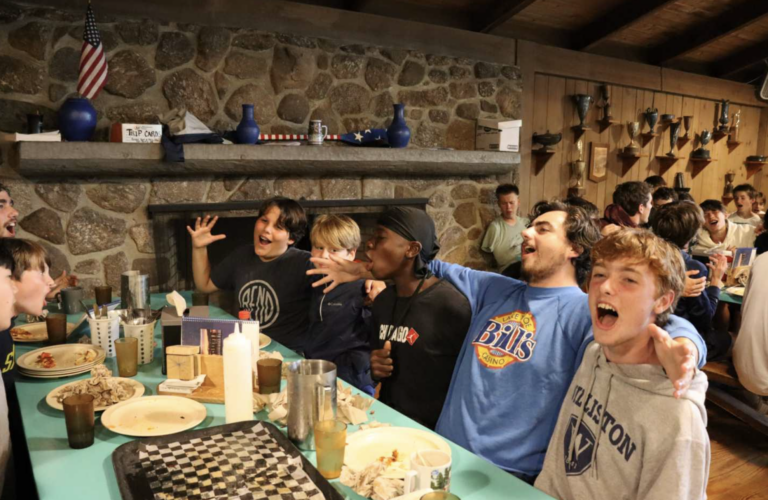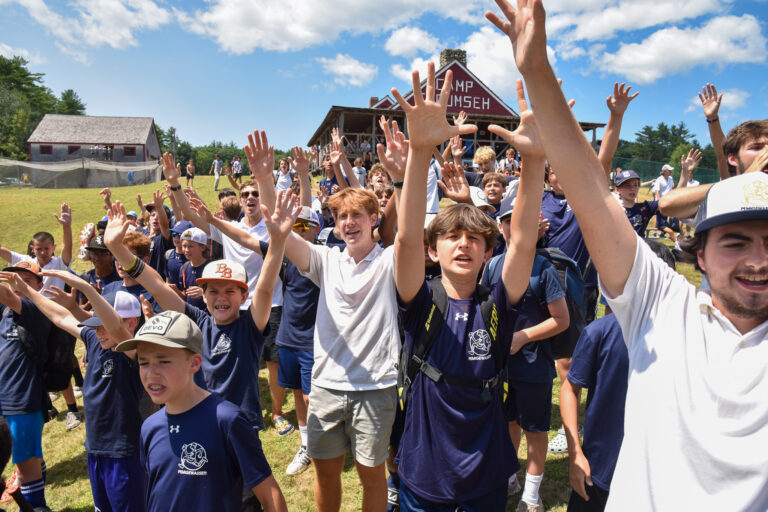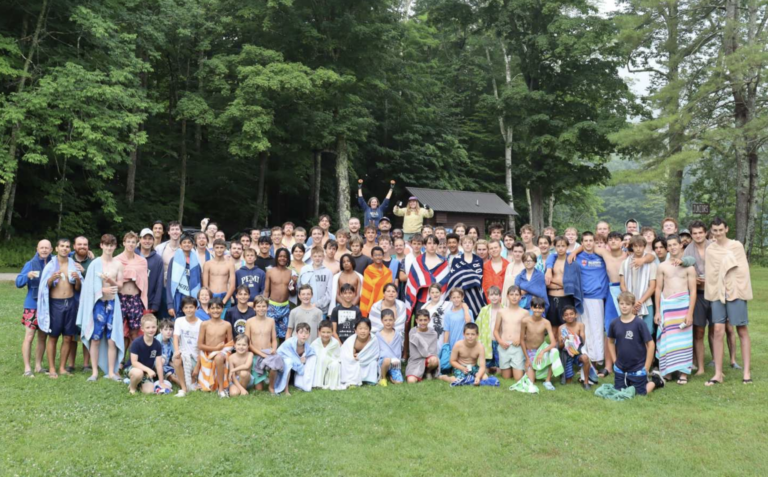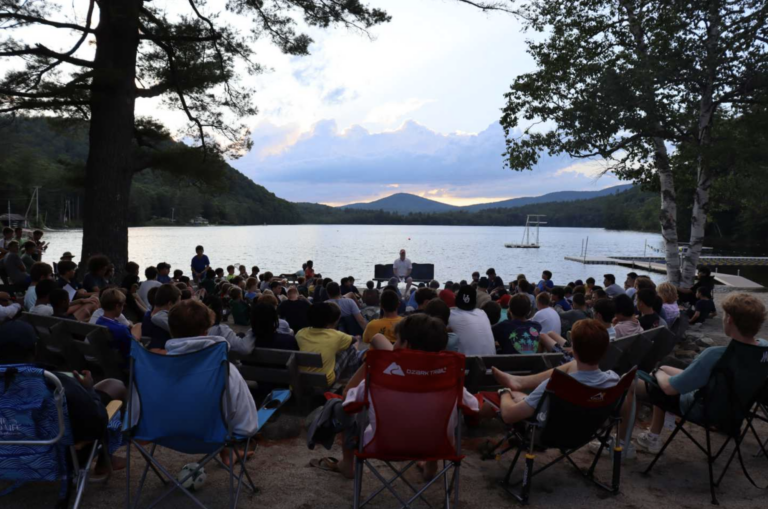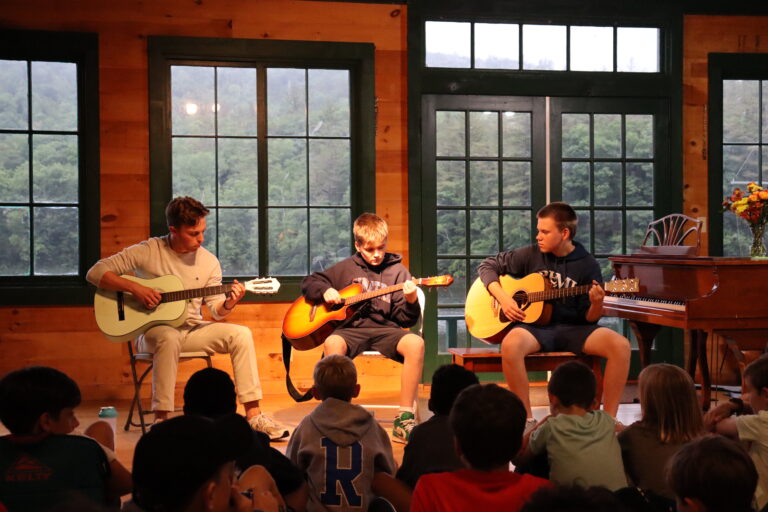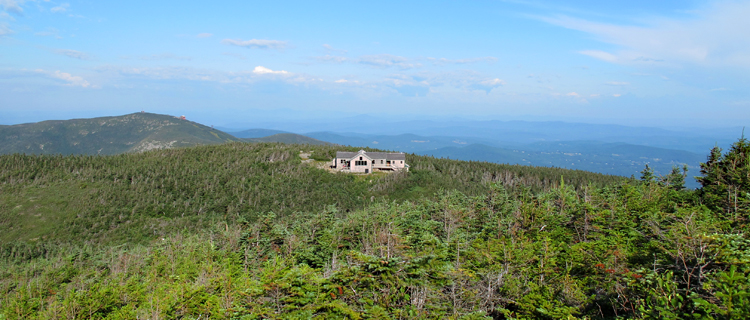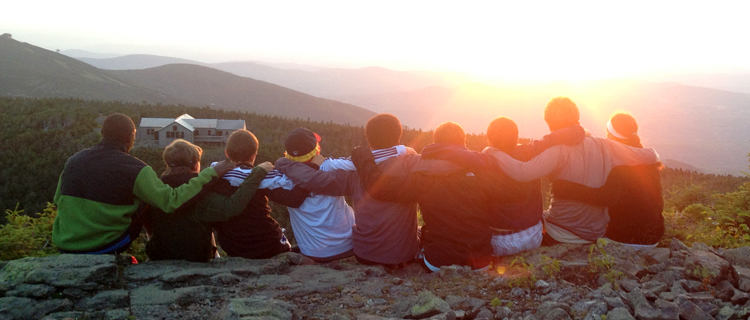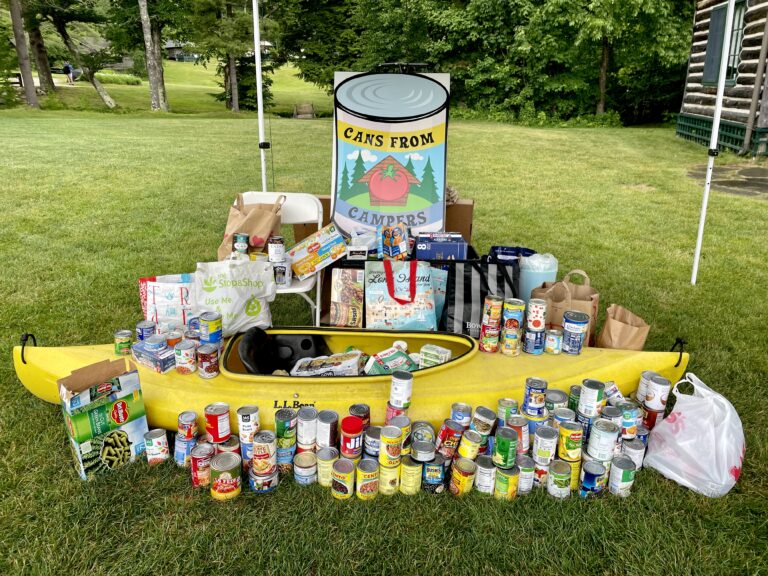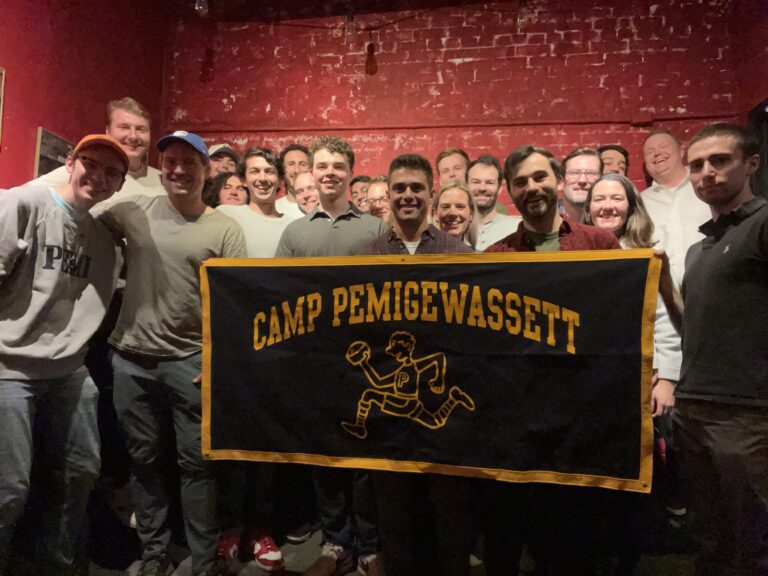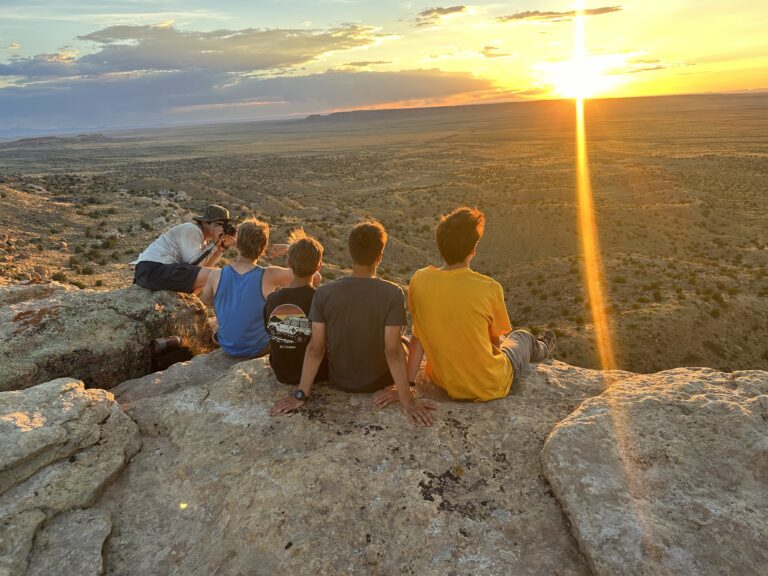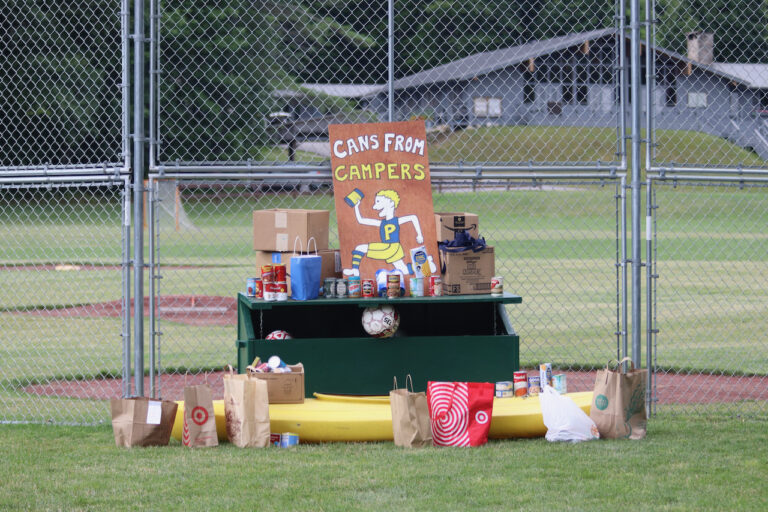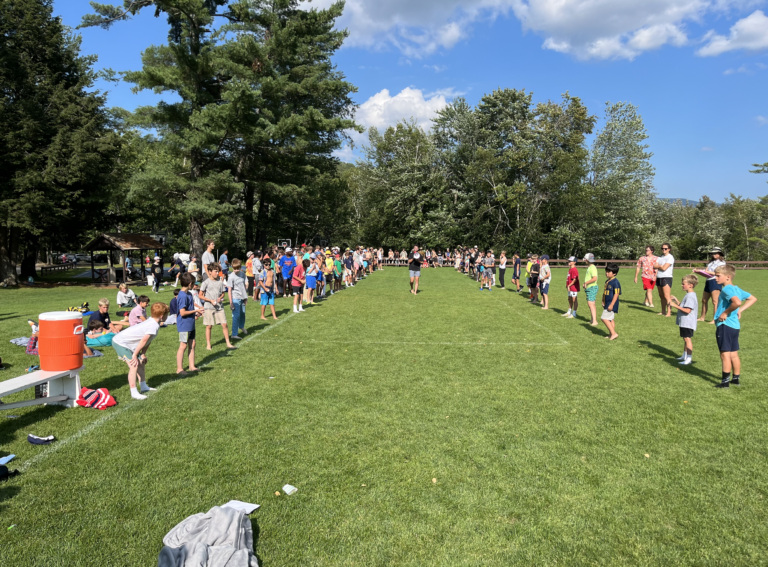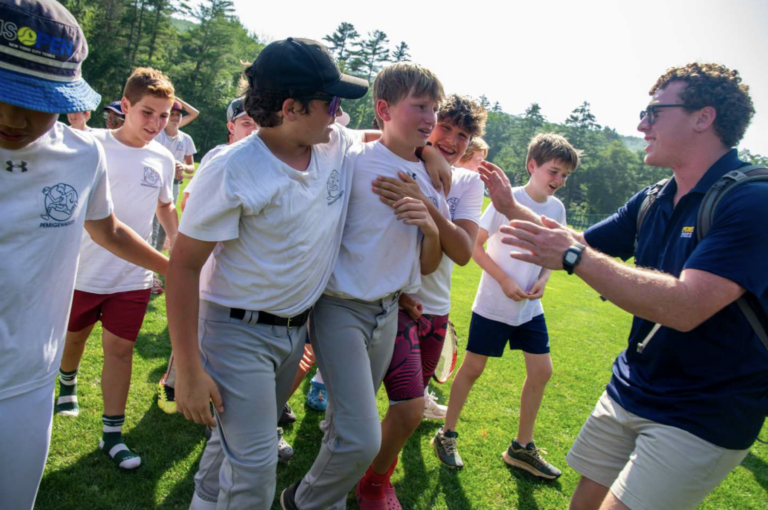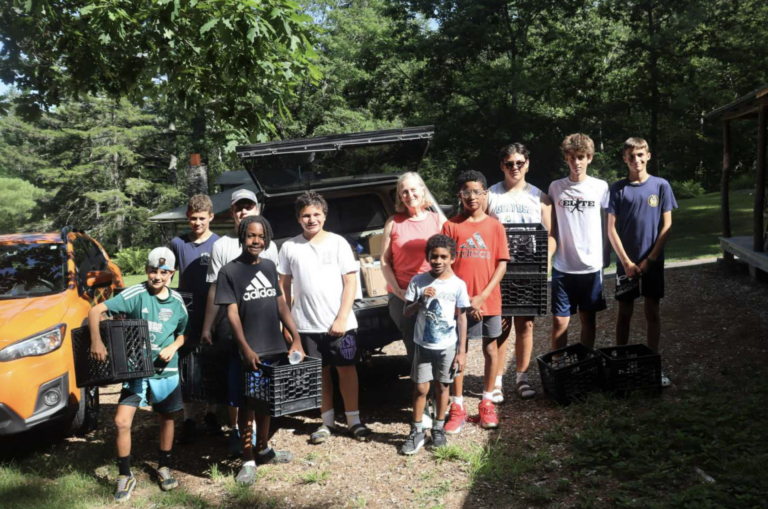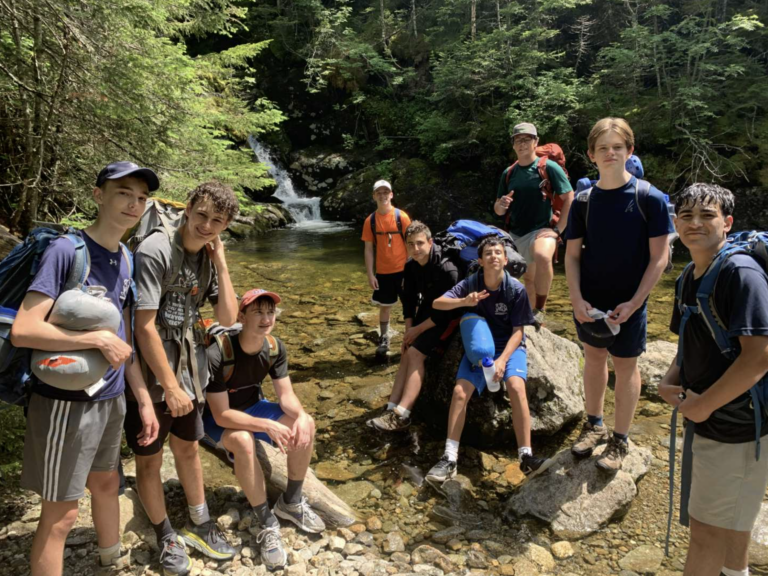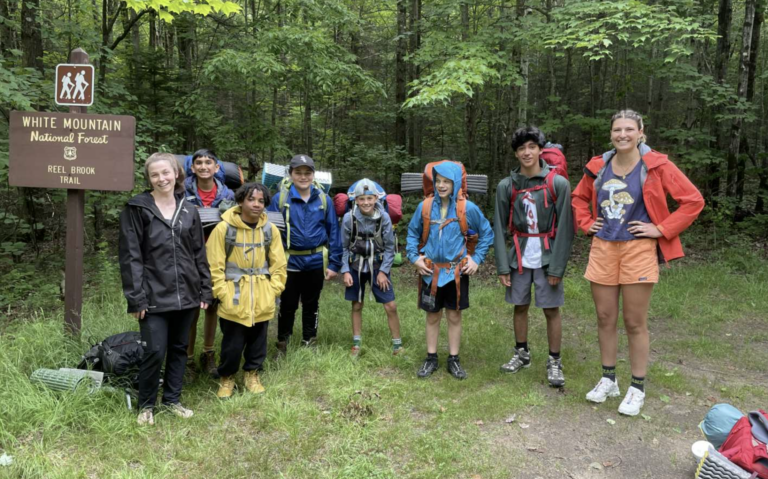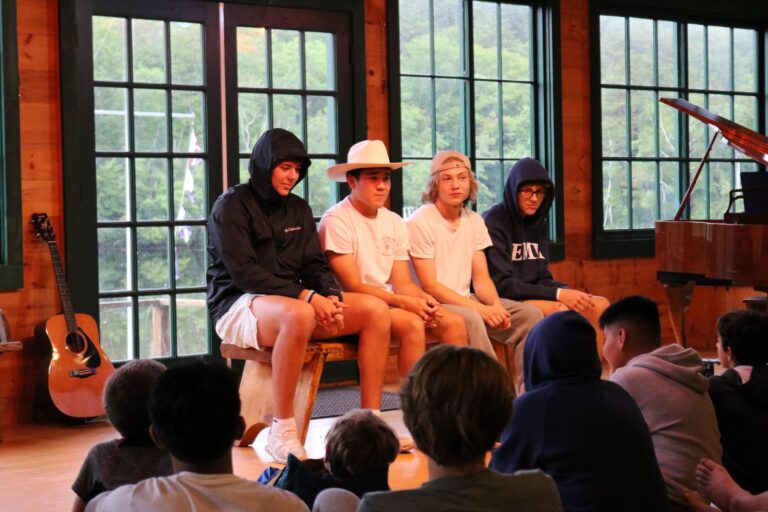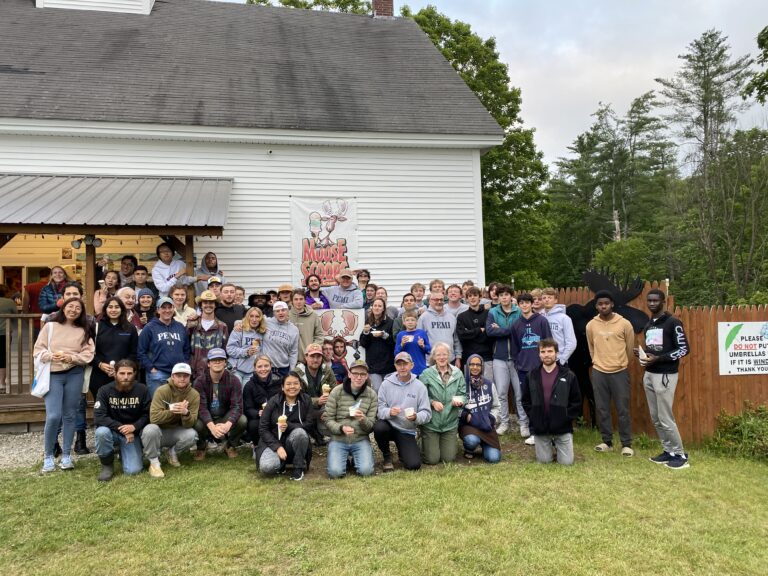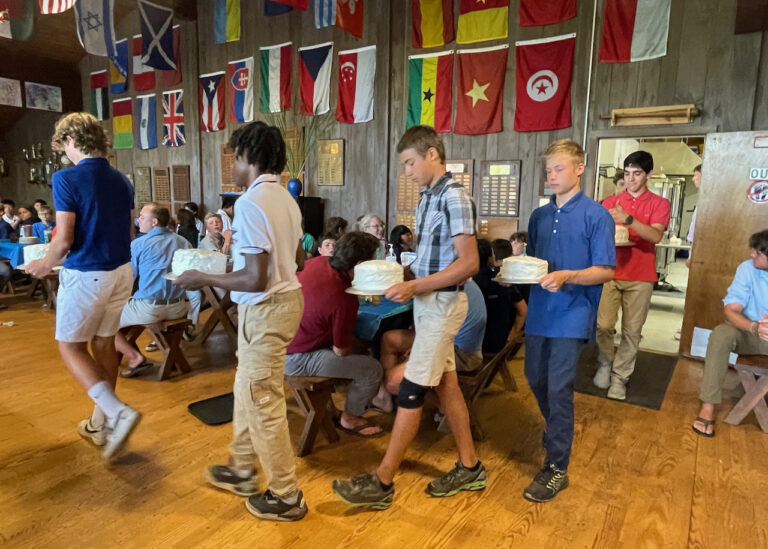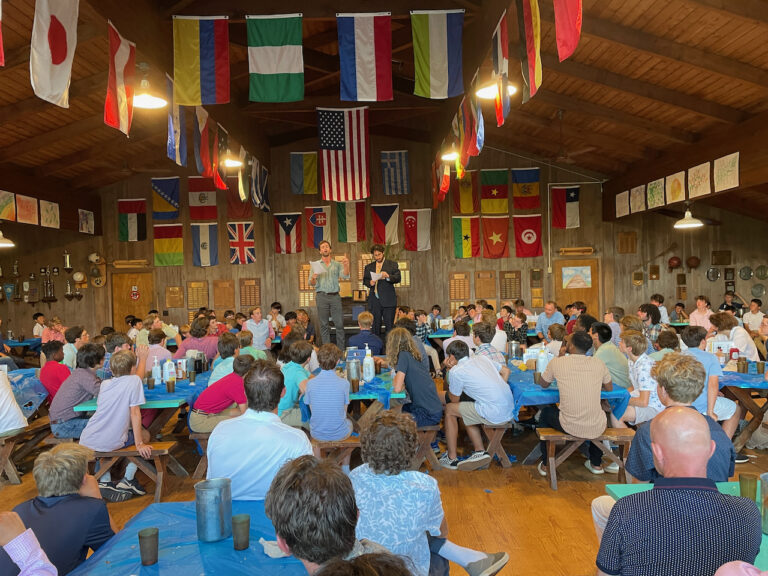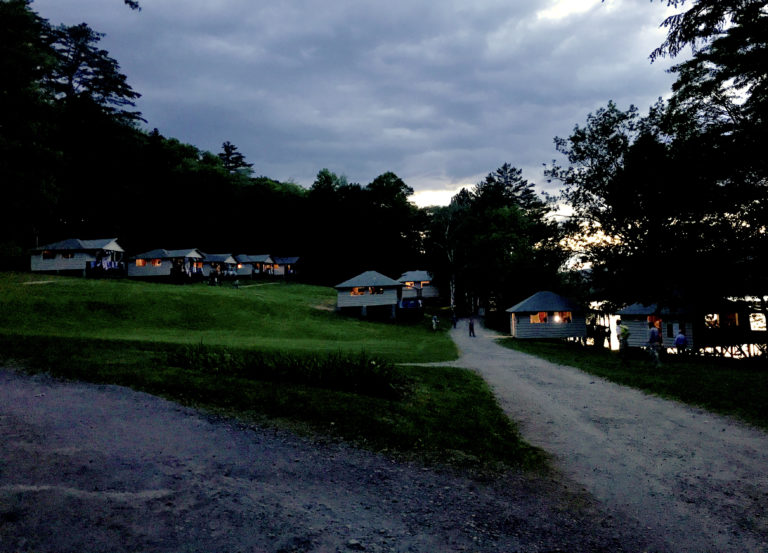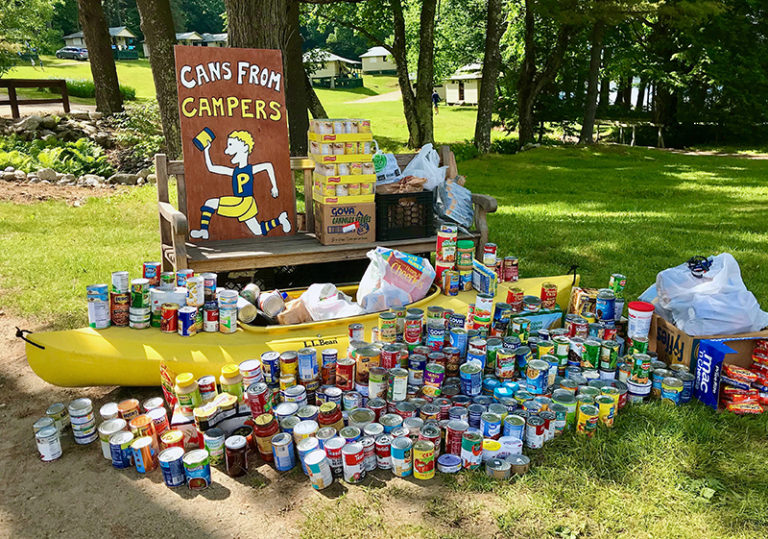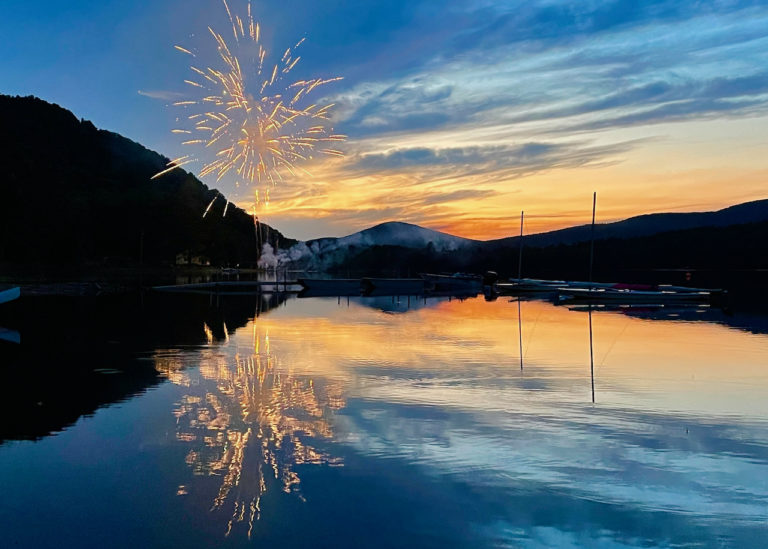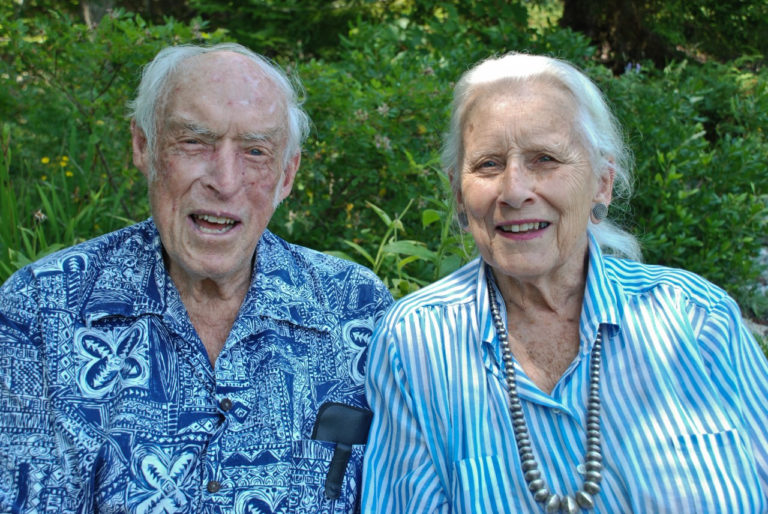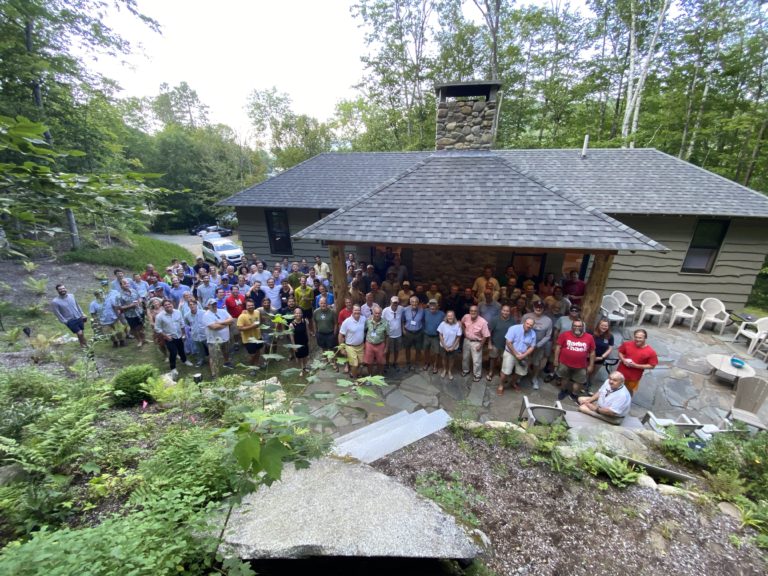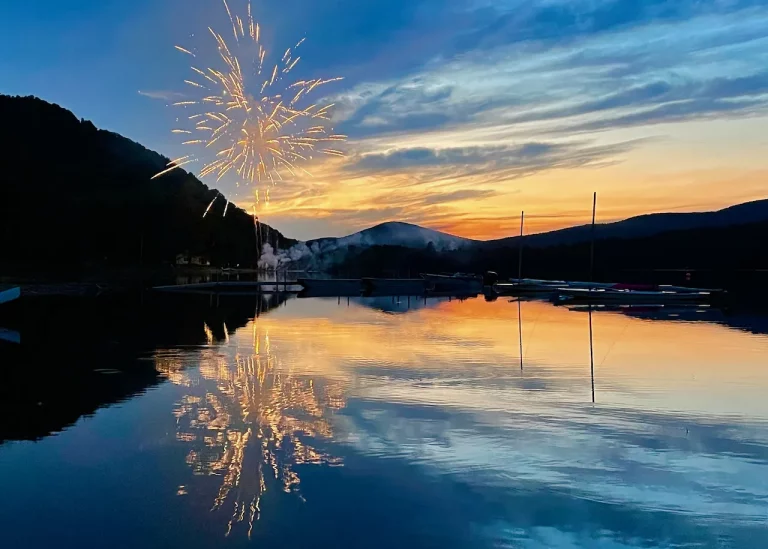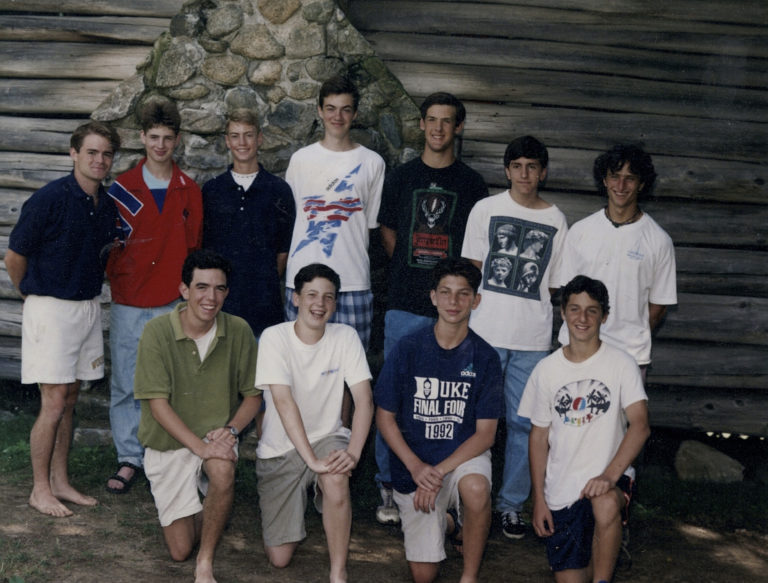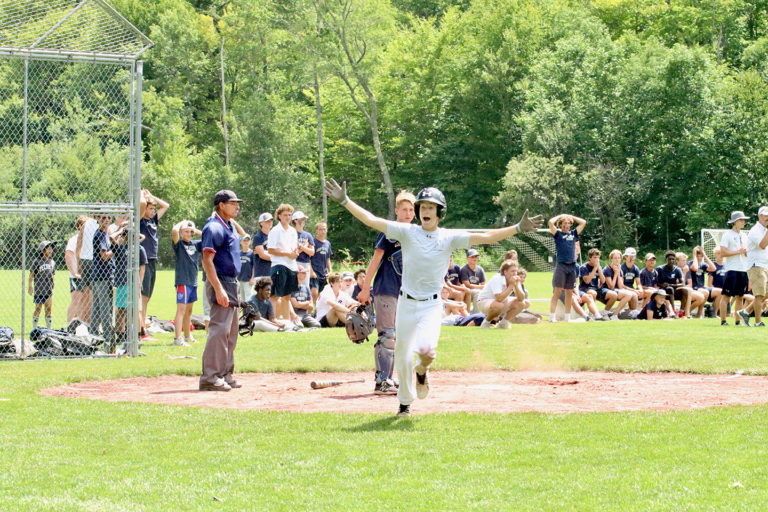- Camp Pemigewassett
- Newsletters 2018
- Pemi Alumni
- Pemi History
- Summer 2018
#5: Pemi Legacies…Pemi Family
After four days of as-close-to-perfect summer weather as we can ever remember, spanning from Wednesday to Saturday last week and blessing us with cloudless blue skies, fresh and cooling breezes, and air so clear that the distant hills seemed as close to being on top of you as that next wave just about to break over you at the seashore, we are experiencing a rainy interlude. Actually, given how dry it’s been, the precipitation is welcome—greening our fields, damping down the dust on our dirt thoroughfares, and making today’s a perfect Rest Hour for a nap. Naps this week, in fact, are a particularly good thing. I believe we hinted in our last number that our annual athletic extravaganza with our storied rivals from Camp Tecumseh is coming up this Friday, and amid frenzied preparation for competition in four events (baseball, tennis, soccer, and swimming) in five separate age groups (10-and-under, 11’s, 12’s, 13’s, and 15’s) and equally frenzied “Beat Tecumseh” cheers in the Mess Hall, it’s great to have some southerly wind, grey skies, and drizzle on the cabin roofs working alongside a spectacular roast pork and potatoes lunch in all our bellies to inspire a little restorative slumber.
Athletic Director Charlie Malcolm will take pen in hand to record for you some of the highlights of the coming Big Day, but know for now that the tone he set for the staff at last night’s post-Taps meeting was classic Charlie. While the odds-makers in Las Vegas are not necessarily choosing us (as opposed to their favorable prognosticating prior to our recent and plentiful triumphs over Camps Moosilauke, Kingswood, and Walt Whitman), the day is important and it makes us a better camp, regardless of the final tally. Tecumseh is a sports camp. We are an all-around camp. They build their entire summer around playing us. We build ours in part around playing them, but also around, for example, caving in upstate New York, the annual Gilbert and Sullivan production, the Allagash canoe trip, singing in the Mess Hall and at the Campfire circle, the annual loon and butterfly counts, the Pemi Week Art Show, our weekly serving of Bean Soup, etc., etc. But if they, year after year, are the best competition around, we become better competitors getting ourselves ready for them, doing everything we can to match them on the pitch or on the courts, diamonds, or docks, celebrating the victories we’re hoping for and accepting the defeats that sometimes come our way—shaking their hands afterwards, though; cheering them and their grit and their skill; sitting down with ourselves afterwards and acknowledging that we really did give our all, that we and our teammates really did leave it all on the field, and that (darn it!) we really had fun! Given this somehow stirring but still settling key note speech by Charlie, the coaches are now working with their charges to get them prepared for their time in the sun—this despite the lingering showers. We know you’ll all stay tuned!
In the mean time, Associate Director Kenny Moore has put together some thoughts about one of the demographic rather than programmatic distinctions that we think sets Pemi apart from a lot of other institutions. Kenny, consistent with his role as Director of Alumni Relations, is our contact person for legacy families, one of his special purviews being the recruitment of sons, grandsons, and great-grandsons of Pemi veterans.
Since 1908, the Fauver and Reed families have built a solid foundation, ensuring Pemi’s success long into the future. We believe that Camp Pemigewassett is the oldest residential boys’ camp in the country under the same continuous family ownership, and the central emphasis on family extends into every facet of our camp. Each cabin group, division, occupation, sports team, and hiking group, together with the collective staff, operates similarly to a family unit. All Pemi individuals take on specific roles, provide leadership, care for one another, and take responsibility for their actions.
Pemi creates opportunities for boys to work together within their newly established family groups on a daily basis—say, eating as a group in the Mess Hall, encouraging each other on a mountain trip, or cleaning the cabin for daily Inspection. Beyond that, the interaction that boys have with different Pemi generations is particularly unique and valuable. The annual Gilbert and Sullivan show is one of the best examples of multiple generations coming together. The cast this year for H.M.S. Pinafore ranges in age from 8 to 71 years old, with our youngest campers in Junior 1 practicing and performing alongside venerable camp folks and cast members Tom Reed, Jr. and Larry Davis. Experiences shared across generations allow traditions to carry forward in an extremely organic and effective way, clearly defining who and what we are at Pemi.
Legacy campers—those boys whose fathers, uncles, grandfathers, or even great grandfathers attended Pemi—offer another snapshot of family at Pemigewassett. This year, close to 30% of our enrollment is made up of legacy campers. Will Silloway, a First Session camper, is our first fourth-generation camper (excluding children of the founding Reed and Fauver families, who are on the 5th generation). Will’s father Roger, grandfather Skip, and great-grandfather Stewart (counselor in 1928) were all Pemi boys!
Alumni parents contemplating sending their boys to Pemi often comment on the wave of Pemi nostalgia that comes over them as their sons near camp age. Treasured stories and memories from their own past pave the way for new experiences for their boys. While father and son are not physically at Pemi at the same time (except, perhaps, for drop-off, pick-up, or visiting days for Full Session campers), this type of shared experience is extremely special. Accustomed to singing traditional American, Pemi, and college songs in the Mess Hall in their various respective decades, more than one “extended” family has been known to croon at their own family dining tables when the nostalgic spirit moves them.
I asked a few of our current legacy campers about the lead-up to their first summer at Pemi. What was the conversation like with their fathers and family members before camp? What sort of advice did their forebears give, and how did that prepare them for their own experience at Pemi? What happened when they returned home?
Fischer Burke, son of alumnus Jeff and Kirby Burke, lives just north of San Francisco and is in his second year as a camper at Pemi. “It was exciting,” Fischer reports, “to hear the stories about camp from my dad. He told me about all the fun he had, the camp records he broke, the activities he did.” When Jeff came to pick Fischer up last August at the end of the 2017 season, Jeff had firsthand knowledge of Fischer’s experience. “Dad knew what I was talking about, and that got him excited to tell more stories from his day.” This story swapping continued well into the fall and winter.
Wim Nook, son of alumnus Bill and Melissa Nook and grandson of alumnus William Nook, loved hearing camp stories from his family. “I remember hearing about singing in the Mess Hall, the Polar Bear swim, even though it was different then (a bit more au naturel!), playing baseball, taking Nature with Larry. Everything was still here for my first year.” Wim commented on Pemi’s living history: “The markings on the cabin show me the guys that were here before. To see their names and dates is pretty cool.” [Editorial comment: Wim’s sense of “cool” runs distinctly counter to our official policy against leaving names carved or Magic-Markered into cabins, but we suppose there’s a “Kilroy” in all of us, and it is always fun to know who got here before we did!]
Angus Williams, grandson of alumnus John “Torpedo” Lewis and wife Cathy, son of Cara Lewis, and nephew of alumnus Will Lewis, is in his fourth summer and is one of our fifteen-year-old leaders. Before he first came to camp, Angus remembers hearing about the classic elements of Pemi: singing in the Mess Hall, campfires on Senior beach, and all the sports his grandfather and uncle played. “They told me what Pemi was about, that it was a home away from home, and when I came here I really understood. It seemed like home to me.” He distinctly recalls driving back to his winter home, answering questions from his family about his camp experience. “My grandfather would ask me if we sang this song, and then we would just start singing it together. He asked me if I did my Distance Swim, and when I told him the story, he just laughed. We did so many of the same things.”
This summer, Angus’ cousin Richard Lewis is in his first year as a camper, and Angus loves having him at Pemi. “I really want to be there for Richard in his first year, to help him out if he needs anything.” These shared camp experiences across multiple generations are an unparalleled way to create bonds between family members.
The traditions and customs of a family or institution bind its members together, giving each individual a strong sense of belonging. The familial nature of Pemi, with its varied and rich traditions, allows worthy and rewarding customs to be passed down to each generation. These customs provide structure for individual members and make it easier for us to be good citizens of the broader world. By living amid the rhythms and rituals of a thoughtful and humane institution, we are included in a community that transcends time. ~Ken Moore
Many thanks to Kenny for his evocation of the way the Pemi Experience, over the years and generations, can bond not only individuals who share the same genes but also those who share only Polar Bear dips, rousing Mess Hall choruses of “We’re From Camp Pemigewassett,” accomplishing their Distance Swims, and drinking in the sunset view with their cabinmates outside Greenleaf Hut high on the shoulder of Mt. Lafayette. They say it takes a village to raise a child. We count it among our blessings that, in playing our small part in raising children, we somehow manage, decade after decade, to create a village.
–TRJR



